|
Anyone who wants to improve his or her spiritual life has to face temptation. Even Our Lord Jesus Christ had times of temptation. One of them was after His Baptism, when the Spirit took him into the wilderness, where he was tempted by the devil (Lk 4:1-13). In this text, we can see types of temptations and how Jesus faces them. However, today I would like to consider with you why we have temptations in our lives. Of course, more important and wiser writers have already written many texts about this topic, but I want to share with you my own experience of how the Holy Bible helps me deal with temptations.
In the beginning, we should emphasize that temptations have been present, are present, and will continue to be present in our lives, especially when we want to be close to God. I remember very well that when I was thinking about my vocation, I often asked God about some sign. I wanted to be sure that my vocation was to be a priest. I had prayed very fervently about it and I received a sign. It was a fragment from the Book of Sirach: “My son, when you come to serve the Lord, prepare yourself for trials. Be sincere of heart and steadfast, undisturbed in time of adversity” (Sir 2:1-2). I was shocked at that time and I understood that everyone who wants to serve God should prepare himself for trials. I think that we might look at these words not just as advice for someone who wants to be a priest or religious. Rather, they are for everyone in the Church. Almost two hundred years ago, St. Vincent Pallotti presented the idea that everyone is called to be an apostle. It means that everyone is called to serve God by sharing his or her faith, to be close to Him, and finally to be holy. Documents of the Second Vatican Council confirmed this idea. Therefore, if we want to be with God, we should prepare ourselves for trials. In our spiritual life, temptations might be one of the trials. When we look at temptation as a trial, we can also recognize at least two important purposes for trials. They can make us a better version of ourselves and lead us closer to God. The first purpose of trials we will find further in the Book of Sirach. The author of this book writes: “Accept whatever befalls you, in crushing misfortune be patient; For in fire gold is tested, and worthy men in the crucible of humiliation” (Sir 2:4-5). These are awfully hard words, but they state two simple truths: for God, we are like gold, and we are dirty. In other words, we are very valuable to God, but we need to be cleaned. Consequently, the trial is like the fire that cleans us. St. Peter has a similar idea: “In this you rejoice, although now for a little while you may have to suffer through various trials, so that the genuineness of your faith, more precious than gold that is perishable even though tested by fire, may prove to be for praise, glory, and honor at the revelation of Jesus Christ.” He is speaking about the faith that is tested by fire. Therefore, we can come to the conclusion that our faith, hope, love, and intentions must be tested in order to make us better. We need to be cleansed from our weaknesses and sins, and after that, we will shine as gold. The second purpose of trials is to bring us closer to God. We can understand this better when we read the Bible attentively. The Holy Bible has thousands of examples where someone had gotten in trouble and he or she looked for help from God. Among multiple examples, I would like to share just one which is important for me. It is from Psalm 57: “Have mercy on me, God, have mercy on me. In you I seek refuge. In the shadow of your wings I seek refuge till harm pass by” (Ps 57:1). The author of this psalm knows that God can help him, so in the time of trial he is not hopeless, even though it seems terrible: “I lie in the midst of lions that greedily devour the sons of men; their teeth are spears and arrows, their tongues sharp swords” (Ps 57:4). Times of trial become for him a time when he wants to be nearer to God. Moreover, he is certain that he will receive help: “He will send [help] from heaven and save me, he will put to shame those who trample upon me. God will send forth his steadfast love and faithfulness!” (Ps 57:4). These words are really helpful for me because they give me hope that God is not far away from me. In conclusion, I know that we can find explanations for why temptations and trials are in our lives. The most important lesson is not to give up and to keep being near to God in that time.
0 Comments
“Jesus returned from the Jordan and was led by the Spirit into the desert for forty days, to be tempted by the devil...” - Luke 4:1-13
In each of the Church’s Liturgical Seasons we have an opportunity to examine ourselves and reflect on different aspects of Jesus’s life. During Lent we create a space to reflect on His suffering and sacrifices. In today’s Gospel reading the Spirit led Jesus into the desert. For forty days Jesus lived in the wilderness, and faced the devil’s temptations. He was tempted with pride, power, and popularity; however, Jesus knew that He was called to follow God’s will and resist the empty promises the devil offered. I find comfort that the Holy Spirit led Jesus into the trial. The forty days were meant to prepare Jesus for the work that was to come, and a part of that preparation included temptations. Jesus relied on His knowledge of the scriptures and combatted the temptations with Truth. Turning a stone into bread seems like an innocent action, but Jesus knew that the temporary satisfaction would be empty and in defiance of God’s will. Jesus understands what it means to face temptation, and in His resistance provides a model of following God’s will that we should all ascribe to. Jesus was tested, and responded without sin. When I find myself facing a trial, I can draw comfort in the knowledge that the same Holy Spirit that led Jesus into the wilderness is in me. In His resistance in the wilderness, we have a foretaste of Jesus’s victory to come. At Easter we celebrate Jesus’s victory over death; in the meantime Lent provides us with a time to fast and prepare our hearts for the inevitable temptations of the world. Lent provides us with the opportunity to spend forty days in our own “wilderness”, fortifying our own hearts through sacrifice and prayer. FOCUS: COMMUNITY Throughout Lent we focus on all that Jesus has done for us. In today's Gospel we see that Jesus resisted each temptation, not just for Himself, but for us. Each of the temptations the devil proposed were designed to distract Jesus from His humanity. Each temptation involved Jesus using His divinity for personal gain and separating Himself from the human community. The temptation of individualism is something that we are all called to resist. The Lord created us as social beings with a responsibility to care for one another. WHO INSPIRES YOU TO SERVE? My Mom has always been a model of service I aspire to follow. She embodies the principle of placing others first, stressing to me and my siblings that “where your treasure is your heart will also be.” Mom’s treasure is rooted in the love she has for our community, and it is important to her that she actively invests her time to show the love. It could be as simple as caring for our school garden, or as involved as organizing our Church’s homeless outreach ministry. Mom has always found a way to make time for the causes that matter to her, and in doing so has shown the importance of committing time and resources to love others in her care for all of God’s Creation. PRAYER: Lord, you created us to love and worship. Help me cling to the truth that I am Yours in the midst of trials. When I walk through the valleys help me remember the joys from the mountain tops, and place my hope in the knowledge that Your will is for my good. Stir in me a heart that longs to discern Your will. Help me to work Your justice rather than personal gain every day of my life. Bless our bodies for Your service, and our service for Your Glory. To view the entire 2019 Lenten Guide, please click here. For more Lenten resources, please click here. Mara Scarbrough, Bon Secours Volunteer Ministry When you hear the name St. Augustine, what do you think of? Probably something about the Confessions, arguably his most famous work. Or perhaps you remember that he is one of the first doctors of the Church. But do you know about his spiritual journey from youthful hedonism to prominent theologian?
St. Augustine was born in the mid 300s in North Africa to a Christian mother and a pagan father. Initially educated in rhetoric, as a teenager, Augustine embraced a life of comfortable vices, which he outlines in his autobiographical and philosophical work the Confessions. Eventually, his intellectual pursuits lead him to Europe, into and out of Manicheism (a dualist religion based on pure reason), and back toward the religion of his childhood. Through the evangelizing work of St. Ambrose, Augustine was finally baptized into the Christian faith in his early 30s. He went on to become one of the early Church’s most important philosophers. For cradle Catholics like me, our faith journeys are nowhere near as dramatic as St. Augustine’s conversion from corrupt youth to doctor of the Church. Nevertheless, there are always opportunities for daily conversion! The teenage Augustine would pray, “Give me chastity and continency, only not yet.” How often do we catch ourselves praying in a similar vein? “Give me temperance—but not until I’ve eaten three packages of Oreos”; “Give me a stronger desire for prayer—but maybe not until next week, after I’m done binge-watching this TV show.” Like Augustine, we often find ourselves wrestling with our human weaknesses and our desire to do things on our own timeline rather than God’s. But even as we struggle to overcome our personal vices, God draws us closer to Himself, taking our fractured pasts to create a beautiful whole. St. Augustine’s theological and philosophical treatises would perhaps have not been so fervent or persuasive had he not previously so fully embraced bad philosophy before his conversion. His secular education and his training in rhetoric and Platonic philosophy prepared him for his work defending true Christian theology and refining its philosophy—so much so that he is recognized as one of the original doctors of the Church. Long before Augustine had come to fully accept the Christian faith, God was already preparing him for his future role as bishop and philosopher. Likewise, our past does not restrict our future. Choices that ended up leading us seemingly nowhere, periods of doubt or conflict—God can take these moments of human weakness and use them to bring us closer to Him. Like St. Augustine, even a previous decade of promiscuity could remind us of how empty is a life not lived for Christ. St. Augustine is living proof that no one—no matter how seemingly corrupt, how spiritually lost, or how morally confused—is beyond the power of God’s grace. On St. Augustine’s feast day, let us consider where we are on our faith journeys. Where is there room for daily conversion? How can we learn from our past failures to more fully embrace a future lived with Christ? Question for Reflection: What failure can I use from my past to build up my relationship with Christ? As I was reflecting on the importance of the Lenten journey, it occurred to me that the forty days Jesus spent in the desert were Christ’s training and preparatory period for His life of ministry. By entering into the desert to pray and fast, our Savior was preparing Himself in body and soul to enter into His public mission. We too are called into a time of spiritual preparation to grow in holiness and become followers of Christ sent on mission. Lent helps us to do this by inviting us to focus on prayer, fasting and almsgiving. Because we are personally called to be stewards of Christ’s work on earth, we each have a special vocation that plays an important role in salvation history. Our Lord, in His humanity, demonstrated for us the importance of preparing for our calling. Let’s take a moment to look at the temptations presented to Jesus in the desert and to reflect on how they may relate to our present life and Lenten journey.
The First Temptation: Hunger “The devil said to him, ‘If you are the Son of God, command this stone to become bread.’” (Luke 4:3) Let’s look at hunger from both a physical and spiritual dimension. Are we respecting our physical hunger by providing our body with appropriate nourishment through a well-balanced diet? Our bodies have been fashioned by our Divine Creator. Are we respecting that gift? Learning to discern the various signs that our body sends us is an important step in growing in discipline. We can strengthen, energize, and nourish our physical selves in a way that will enable us to carry out our calling. When we ignore this area of challenge and growth, we fail to establish a sense of physical discernment and our fallen desires become the master of our selves. Throughout Lent, we are invited to abstain from certain things, like meat on Fridays. This helps us to grow in healthy self-denial and invites us to make sacrifices that free us to more intentionally satisfy our spiritual hunger. When looking at spiritual hunger, do we even acknowledge that this desire exists? Are we aware of it? We cannot live without God. Oftentimes, it can be tempting to focus more on satisfying our physical needs than our spiritual needs. Lent is a wonderful time to focus on satisfying our spiritual hunger for God. Can we discern a spiritual versus physical desire? Are we turning to good, Christian practices to help us sustain our spiritual bodies or are we starving them? Do we nourish our soul with Scripture and frequent reception of the sacraments or do we drown this desire in the noise of daily life? The Second Temptation: Power “Then he took him up and showed him all the kingdoms of the world in a single instant. The devil said to him, ‘I shall give to you all this power and their glory; for it has been handed over to me, and I may give it to whomever I wish. All this will be yours, if you worship me.’” (Luke 4: 5-7) In this temptation, the devil offers Jesus thrones and dominions, the powers of the world. Jesus knew that all powers belonged to His Father in heaven, and that all human power is a gift from God. On Ash Wednesday, we often hear the words, “Remember you are dust, and to dust you shall return.” Lent reminds us of our humble origin and our final end. It invites us to grow deeper in our humility and on our reliance on God, who elevates us to His sons and daughters through Baptism and invites us to eternal life with Him. What powers or successes are we tempted by in our lives? Are they disordered? Let us reflect on the things in our lives that we cling to, strive for, or attempt to control. Is there anything God is asking us to hand over that we can give Him this Lent? Have our goals become idols in our life? What false power have we been blinded by that has taken worship away from our Almighty and Triune God? The Third Temptation: Putting God to The Test “Then he led him to Jerusalem, made him stand on the parapet of the temple, and said to him, ‘If you are the Son of God, throw yourself down from here…’” (Luke 4: 9-10) In this temptation, the devil challenges God’s authority and invites Jesus to test God’s power. What are the ways in which we test our Heavenly Father? Do we only turn to God in times of need or instead seek His guidance in all circumstances in life? There is a very important difference between throwing ourselves down in order to see if we’ll be caught versus allowing ourselves to fall, trusting that we’ll be held. Our relationship with our Heavenly Father should not be one of testing, but of trusting. By refusing to give in to the devil’s temptation, Jesus models for us trust, obedience, and faith—what Adam and Eve lacked when they experienced temptation in the Garden of Eden. As we continue through our Lenten journey, may we open ourselves to a deep and honest reflection of these temptations and remember that Christ has already overcome our greatest enemy: the devil. Our Savior, who is fully God and fully man, entered into a time of preparation to discipline and strengthen the physical in order to allow the spiritual to grow and develop. Christ shows us the way against temptation and gives us the strength to overcome it, knowing that the Father of Lies will be waiting with his temptations and tricks to stop us from fulfilling our role in salvation history. During Lent, let us continue to prepare for our call and, strengthened by the powers of heaven and Jesus Christ Himself, not allow the temptations of the Evil One to stand in our way. Questions for Reflection: What are your greatest temptations during Lent? What are some ways you have been able to overcome temptation? Click here for more resources to guide you throughout your Lenten journey. “The New Evangelization is accomplished with a smile, not a frown.” – Cardinal Timothy Dolan (Address to the College of Cardinals, February 2012)
There is nothing simplistic about Cardinal Dolan’s point above. Some, who are not examining it carefully, might see it as such. No, instead, in a short, pithy comment that is very emblematic of his style of speaking, he is summarizing his main point that “the missionary, the evangelist, must be a person of joy.” Sadly, there are many dour people among the baptized who Pope Francis calls “sourpusses” in Evangelii Gaudium, n. 85. Interestingly enough, Pope Francis uses this word not simply as a rebuke to those who hold a particular view, but instead as a call to trust in the One who sends us forth, Jesus Christ. “One of the more serious temptations which stifles boldness and zeal is a defeatism which turns us into querulous and disillusioned pessimists, ‘sourpusses’. Nobody can go off to battle unless he is fully convinced of victory beforehand. If we start without confidence, we have already lost half the battle and we bury our talents. While painfully aware of our own frailties, we have to march on without giving in, keeping in mind what the Lord said to Saint Paul: ‘My grace is sufficient for you, for my power is made perfect in weakness’ (2 Cor 12:9).” The smile then on the face of the joyful evangelizer is one of confidence in Christ. Note that it is confidence, not arrogance. Some confuse the two and become self-proclaimed judges of the level of Catholicity of another. Instead, we are called to docility in Christ, a trait that is not practiced often enough. It is a humility that understands that no one person has every answer. We look rather to the community of faith, the Church, for our guidance, our deeper understanding, and our unity with one another amid our diversity. As Pope Francis teaches, “differences between persons and communities can sometimes prove uncomfortable, but the Holy Spirit, who is the source of that diversity, can bring forth something good from all things and turn it into an attractive means of evangelization” (EG, n. 131). Let us go forth, then, joyfully – as evangelizers, as missionary disciples, as apostles – as those who are fully confident in the message that we have received, that Jesus Christ is Lord and Savior of all and that the Church shares this good news and continues his mission until he comes again. May the Charity of Christ urge us on! But he said to them, "Unless I see in his hands the print of the nails, and place my finger in the mark of the nails, and place my hand in his side, I will not believe." -John 20:25 During this beautiful liturgical season of rejoicing in the Resurrection of Our Lord, I always find this particular passage about “Doubting Thomas” extremely important to stop and reflect upon. After weeks and weeks experiencing the desert of Lent, the Passion on Good Friday, and the somber waiting on Holy Saturday, we celebrate the Father’s goodness, His promise fulfilled, His Son glorified on Easter Sunday! Praise Him, for “by his wounds we are healed.” (Isaiah 53:5) On the Sunday when the Gospel passage about Thomas is proclaimed, I tend to sympathize with the “doubting” disciple. Thomas was not there the first time Jesus appeared to the disciples. I resonate with Thomas’s human response of needing to touch the side of the Lord in order to believe. What strikes me about Thomas is his initial understanding that the Resurrected Lord would have His wounds. Why did Thomas believe the Lord in His glory would still be wounded? I find myself thinking of the Lord in His glorified body as “perfect,” without blemish, without the aftermath of pain, with every scar from Good Friday completely gone. Thomas, however, needed to see evidence from the Lord’s action on Friday for the sake of belief. Thomas came to know the Risen Lord through His wounds. Do you fall into the same temptation that I do, that resurrection means pain and suffering will be completely dispelled and erased, as if it never happened? This is not how the Lord comes in His glory. Jesus returns with His wounds, glorified, resurrected, transfigured. In fact, Jesus’ wounds were necessary for the increasing of faith for His disciples. Christ takes on the burden of our sins in order to overcome them. He conquers man’s greatest foe, death itself, and invites us to eternal life. The scars and wounds Christ shows Thomas give testament to this truth. The pain of Good Friday brings the sweetness in the joy of the Resurrection on Easter Sunday and thereafter. How does this apply to our lives? Are you struggling with something you see little hope in? Do you find yourself asking the Lord for a different cross? Just as Jesus’ wounds and sufferings are glorified, so shall ours be if we turn them over to God. We can be sure then that our own struggles, crosses, and sufferings will be brought to glory, not forgotten, but resurrected. Our particular areas of pain can bring others to the glory of Jesus Christ! Let us ask St. Thomas to help our unbelief and truly live in the hope of the Resurrection. “Each man in his suffering can also become a sharer in the redemptive suffering of Christ.” –St. John Paul II, Salvifici Doloris Question for Reflection: How can the story of “Doubting Thomas” increase your faith? Have there been times in your life when you, too, need to see in order to believe? Leadership is essential for a healthy and holy Church. From St. Peter to Pope Francis where would our Church stand today without the great and gifted leaders through the centuries? Leadership in the Church, including local parishes, is not immune from the kinds of temptations leaders face in any institution. Based on my experience, I’d like to consider three temptations many leaders face framed by J.R.R. Tolkien’s classic Lord of the Rings series. It is my hope that understanding and being aware of these temptations will lead to a stronger, more unified Church grounded in the love of Christ. The Pursuit of Power “The road must be trod, but it will be very hard. And neither strength nor wisdom will carry us far upon it. This quest may be attempted by the weak with as much hope as the strong. Yet it is oft the course of deeds that move the wheels of the world: Small hands do them because they must, while the eyes of the great are elsewhere.” (The Fellowship of the Ring) Tolkien’s story relies on some rather homely and “weak” characters—hobbits—to carry out a great task: destroying the magic ring to save Middle Earth. We normally identify leaders by their exceptional strengths and talents. We use popular tools like strength and personality finder tests to help us identify our unique gifts. Using our gifts and talents to build up the Body of Christ is prudent and life-giving, but we should not too quickly assume God only wants to use our human strengths to bless or lead his Church. In fact, God often builds up the Church by using our weaknesses. He entrusted the building of His Church, afterall, not to the rabbis and scholars of his time, but to simple men, fishermen. As St. Paul frequently preached, cross-shaped leaders learn to live first out of their weakness and dependency on the power of the crucified Lord: “Consider your own calling, brothers. Not many of you were wise by human standards, not many were powerful, Rather, God chose the foolish of the world to shame the wise, and God chose the weak of the world to shame the strong… I came to you in weakness… so that your faith might rest not on human wisdom but on the power of God.” (1 Cor 1:26-27; 2:3,5). Knowing our weaknesses helps us as leaders to not fall into the temptation of the pursuit of power. Christ is glorified in our human weakness and can transform it for the building up of His kingdom. The Allure of Ambition “You are so wise and powerful, will you not take the ring?” “No!” cried Gandalf, springing to his feet. “With that power I should have power too great and too terrible.” (The Fellowship of the Ring) The allure of the ring is the promise of control, but the great wizard Gandalf understands the power of the ring inevitably ends up controlling the wearer. True leaders develop habits of cooperation and collaboration in ministry and are quick to deflect praise and thanks onto others. Because leaders are in a position to influence outcomes and events, however, some can be tempted to an unhealthy ambition. Sometimes, it can be tempting to view parish ministry as a stepping-stone to a bigger, better career in the church or name recognition. Unhealthy ambition can also feed a spirit of competition and criticism between churches that undermines our call to communion. One of my go-to prayers to combat this attitude is called the Litany of Humility. It is a good practice to periodically check our focus and drive. Does our work stem from a love of Christ and His Church? Are we seeking God’s greater glory or our own? Masking Immaturity “All that is gold does not glitter, Not all those who wander are lost; The old that is strong does not wither, Deep roots are not reached by the frost.” (The Fellowship of the Ring) I had a friend who out of college was given the responsibility of the youth ministry program at his home church. Unfortunately, early on he made a financial mistake that ruined a popular trip and drew harsh criticism from parents and staff alike. Unable to cope with such treatment, he resigned from ministry shortly after. Rather than seeing failure or mistakes as reasons to give up, these can be seen as important opportunities for growth and maturation. A young church is surely a sign of a healthy and growing church, but that doesn’t make it a mature church. While the freedom to take risks and make mistakes is an indispensable part of learning, leaders should surround themselves with team members who are varied and diverse in their ministry experience. For those who are relatively new to working for the Church, I suggest finding a faithful mentor or spiritual director with whom you can share struggles and receive encouragement. As Tolkien notes above, the Church needs wise, mature men and women to walk alongside its young, teaching patience and perseverance in order to grow deep roots. Thanks to many gifted and faithful leaders, our Catholic Church indeed has deep, strong roots. By knowing and understanding a few temptations leaders can face, we can help our Church become more faithful and stronger. Pray for our church leaders, that God may give them the grace to be wise, humble, gracious, and joyful examples of the call to be more obedient followers of Jesus. Whenever I tell people, “I am the Wellness Coordinator for Saint Patrick’s,” I usually get the same reaction: “You are the what?” Although there are various churches that hold wellness or exercise classes in their facility, we are not aware of any actual positions that exist for this purpose. So, I was given a title, an office, and some general guidelines and responsibilities. Then, I was given the freedom to create. I would like to take a moment to share with you some of my beginning experiences in creating and building a ministry to meet a need that our pastor, Father Forrey, recognized in our community. It is my hope that you can use some of my experiences to either assess, re-invent, or create whatever ministry field it is that you are being called to. We are blessed in our parish to have an outdoor track and Parish Activity Center with a multi-purpose gymnasium and various meeting rooms. Recognizing the potential of the functionality of such a space, Father Forrey wanted to be able to provide our parishioners with wellness and exercise activities. When we first began to look at this idea, we asked ourselves not only what our need was, but also how we could meet it in a way that would lead our parishioners to a deeper community with one another, as well as a deeper relationship with Jesus Christ and their Catholic faith. There are many places in our area to attend wellness and exercise activities. Why come to the church? What is the need you are meeting? It’s important to first identify the need your ministry or program is hoping to address. In our case, we wanted to focus on the health and wellness of the whole person. As a society, many know that a healthy lifestyle is good for us. And, for the most part, we know the general steps that we need to take to attain that lifestyle. Yet, the majority of our population is still struggling with body image and maintaining a healthy weight. What is missing? As Christians, we know we are called to no longer be slaves to sin and temptation. We are free to offer our bodies as weapons of righteousness for God (cf Romans 6:13). The Catechism teaches us that, through the human body, the elements of the world are summed up and brought to perfection, thus freely praising the Creator. (CCC, 74) Do we truly believe and live this notion? When we exercise, when we eat, when we move our bodies, are we realizing that this, in and of itself, is a form of praise to God? Ah! This is the key! We can create a positive, spiritually uplifting environment where our exercise and our health become a form of praise and thanksgiving. The saving truth of the resurrection and the belief of BODY and soul being raised on the last day--that is what we can offer. Working from this truth is what sets our ministry apart from other wellness and exercise activities. What is your mission? Once we identified our specific need, it was time to create a mission statement to assist us in keeping the work of our ministry focused. A mission statement is especially important when considering new program or class offerings. If your ministry is no longer in its infancy, I encourage you to re-asses your mission. Are you still ministering to the same demographic and meeting the same need, or has your scope of work and use of talent shifted? The mission of your ministry should be your compass – make sure it is pointing north. After identifying the need that we were striving to meet, we knew that it was important that our mission reflected the need to minister to the health and wellness of the whole human person. Therefore, our mission is to provide the tools and support necessary to foster a healthy community through five aspects of wellness: Physical, Mental, Social, Emotional, and Spiritual. Every time we have an idea for a program or class offering, we use this compass to make sure that we are staying true to our intended path. Having a mission statement and using it as a compass will also ensure that your program or ministry continues to meet the needs of your community. In the second part of this series, we will look at how research, collaboration, and networking can help to build a sustainable foundation in order to build and carry out your ministry. Be sure to read part 2 of this series in early June! Like most high school students, I had a yearly summer reading list to complete before the start of the next school term. One summer, I was required to read “The Five People You Meet In Heaven” by Mitch Albom. Reading this book was a “light bulb” moment for me. One line from the book stuck with me: “There are five people you meet in heaven. Each of us was in your life for a reason. You may not have known the reason at the time, and that is what heaven is for.”
After reading that line, I knew there had been individuals placed in my life for reasons I came to realize after reflection, as well as for reasons yet to be revealed. This week, I continued my reading of “The Discernment of Spirits”, Saint Ignatius’ teaching further interpreted by Fr. Timothy M. Gallagher, O.M.V., and I was reminded again of how God places individuals in our lives for a reason. In Saint Ignatius’ rule No. 2 of the discernment of spirits, he explains how people seeking God find encouragement, strength, courage, consolation, inspiration, and ease so that they may go forward in doing good. To dissuade us from following the path toward God, the evil spirit gives us anxiety, saddens us, and places obstacles in our way so that we are disquieted with false reasons to fall away from doing God’s will. Temptation takes many forms. In people who don’t easily succumb to sin, the evil one’s tactic is a gnawing feeling that triggers anxiety and diminishes peace and delight in God’s service. We may also find ourselves sad without knowing why when it comes to prayer, the loss of love for others in God, or any other pursuit of God – it is not a sadness such as that of the loss of a loved one or occupation. Obstacles are placed in our way, questioning how we can continue a life of daily prayer, for example, and live a lonely life. And lastly, false reasons can begin to fill our thoughts. After a Lenten retreat this year, I felt rejuvenated in my faith, but then started to feel like I didn’t make the most of my retreat experience and how I failed in my time with the Lord. I was wrong and needed to see that it was temptation seeking to cloud my judgment and give me a false reason to not attend future retreats. In contrast to these negative feelings, we know when we are on God’s path when God quiets our hearts from anxiety and we feel encouraged or strengthened by a decision or experience. For example, I have a friend who also blogs for the Catholic Apostolate Center, and his Facebook postings of each new blog popped up on my newsfeed. I was encouraged by this friend and my family to find out if I could blog from a different state. I found out I could, and each time I have a blog due, my faith is re-energized as I’m excited to share a new piece of my faith with others. God also assists us through inspiration. After my college graduation last year, I told a friend how I was nervous to be in a town without the great friends I had made in the last four years. She invited me to attend a young Catholic adult group in my new town, and now I am good friends with these great individuals. They inspire me each time we talk, and they recommend books and prayers that helped them overcome similar difficulties. Lastly, God eases or takes away obstacles. During one Mass I attended in college, a guest priest shared his goals for the Parish Mission starting the next day. I had not been to a mission before, but the more he talked, the more I felt compelled to go. For the next 24 hours, the feeling never went away. I even completed my homework early for the first time that semester. On my way to church, I ran into an old friend going to the mission. She was hoping to find a friend so she wouldn’t be alone. We sat together and, afterward, talked all the way home. Timothy 2:21 says, “If anyone cleanses himself [from what is dishonorable], he will be a vessel for lofty use, dedicated, beneficial to the master of the house, ready for every good work.” It’s quite amazing to look back and see how far I’ve come on my own spiritual journey due to the individuals placed in my life by God, so that I may also do his work. Dana Edwards is a recent graduate of the University of Florida. She currently resides in Tallahassee, Florida where she works as a Digital Strategist, and volunteers as a lector and with communication outreach at her local parish, Good Shepherd Catholic Church. To read Dana’s first post about the Discernment of the Spirits, click here! Some years ago, a dear friend and I began what we would term our "Advent Tradition." We would do something to celebrate Christmas before we both left Washington, D.C. for the holiday. (I hope that sounds as ridiculous to you as it does to me…) That year, we went to see Messiah at the Kennedy Center. It was our first time seeing Handel's oratorio, heard over and over in concert halls across the world in the days leading up to Christmas. After the singing of the "Hallelujah Chorus," my friend leaned over to me and said, "I thought that was supposed to be a Christmas song, but we had to wait until Easter for them to break it out."
Advent has always occupied a special place in my imagination. Initially, I'm sure, it was because of those quintessential Advent practices. We had an evergreen wreath with four candles, a new one lit each week (when do we light the pink one??). We sang songs at church that we didn't hear at any other time of the year. The rest of the world was tiring of "All I Want for Christmas is You" by mid-December and, in church at least, we hadn't heard one strain of "O Come, All Ye Faithful." Resisting the temptation to peek behind the doors of our Advent calendar taught me something about patience and delayed gratification. What I came to realize, though, is that Advent, with all of these little traditions, encapsulates the tension of living the Christian life. We live in the here and now, knowing that Christ in his first coming has sanctified all of our existence, but longing for the day when he will return to us. Longing for the day when the confusion and struggles of this life will be no more, when mountains will be lowered and valleys filled, when the lion will lie down with the lamb, and when peace will reign. Living in Advent is living in tension - aware of what is our past and what we long our future to be. Every day we live in the Advent tension of life and death, of suffering and wholeness, of love and loss, of peace and violence, of acceptance and rejection, of excess and poverty, of oneness and loneliness, of questions and surety, of hope and doubt. The question is, do we welcome Christ into this tension? As my friend and I walked out of the Kennedy Center that night, I realized that, despite an attempt at celebrating Christmas, we glimpsed an Advent moment. We were reminded, one more time, that without the Passion, we could not shout "Hallelujah!" The tension of Advent surrounds us, but how well do we allow Christ to enter into that uncertainty and woundedness? If we do welcome Christ into our tension, we also welcome the new life that Christ brings with his Resurrection. That's an Advent worth celebrating. David Pennington is the Associate Campus Minister for Liturgy and Worship at The Catholic University of America. “The Lord be with you!”
If you’re still tempted to respond “And also with you!” you’re not alone. We’re approaching six months since the third edition of the Roman Missal was introduced in the United States, and most Mass-goers seem to be getting the hang of it. But as the responses become more of a habit, there is a danger that we begin to overlook the significance of what we are saying. I’ll proudly admit it: I love the new translation of the Mass! It is so beautiful to praise God with such eloquence and majesty. But my favorite part is the end of Mass. Not because “yay, Mass is over,” but because we are commissioned and sent forth to do God’s work in the world. In the new translation, the priest or deacon has four options for the dismissal. Note that each begins with “Go!” We are being sent out. The new ones are particularly poignant: “Go in peace, glorifying the Lord by your life” and “Go and announce the Gospel of the Lord.” Amen! I am reminded of the words often attributed to St. Francis, “Preach the Gospel at all times, when necessary use words.” The word “apostle” means “one who is sent.” Having received Christ during the Mass, we are sent forth as emissaries of the Gospel in the world. Each of us is called to be a modern day apostle, glorifying God in our everyday lives and “preaching” the good news of the Gospel through simple Christian witness. If we are to guard against the temptation to simply ‘go through the motions’ once we have committed the new mass responses to memory, we must continue to examine the import of the words that we are saying. Taking into account the words of the dismissal, how can we better glorify the Lord by our lives and announce the “good news” as Christian apostles in the world? Acting as leaven and enabled by God’s grace, we can raise up our fallen world to the glory of God. So what are you waiting for? Go! Nick Wagman is the Project Management & IT Coordinator for the Catholic Apostolate Center. |
Details
Archives
July 2024
Categories
All
|
About |
Media |
© COPYRIGHT 2024 | ALL RIGHTS RESERVED



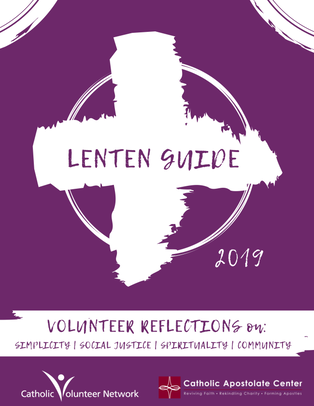




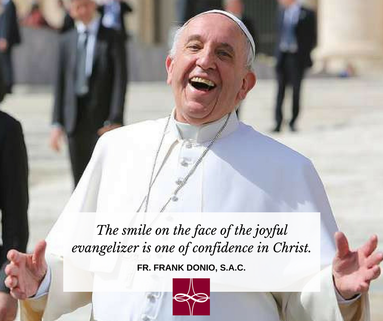
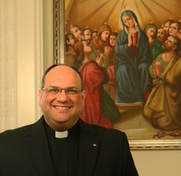
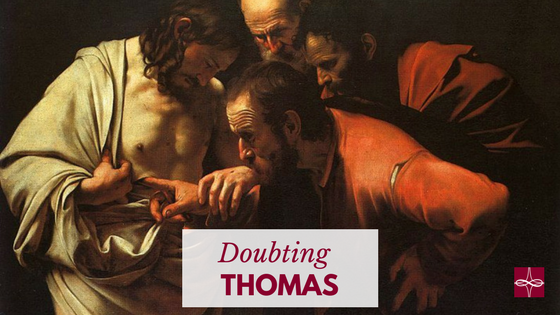

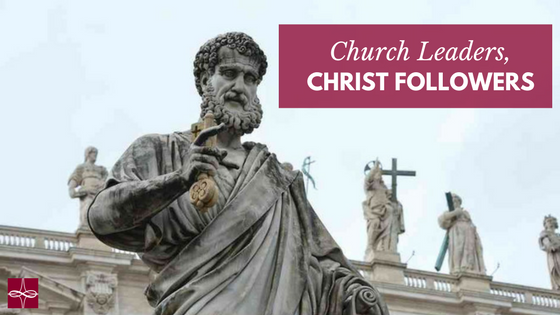
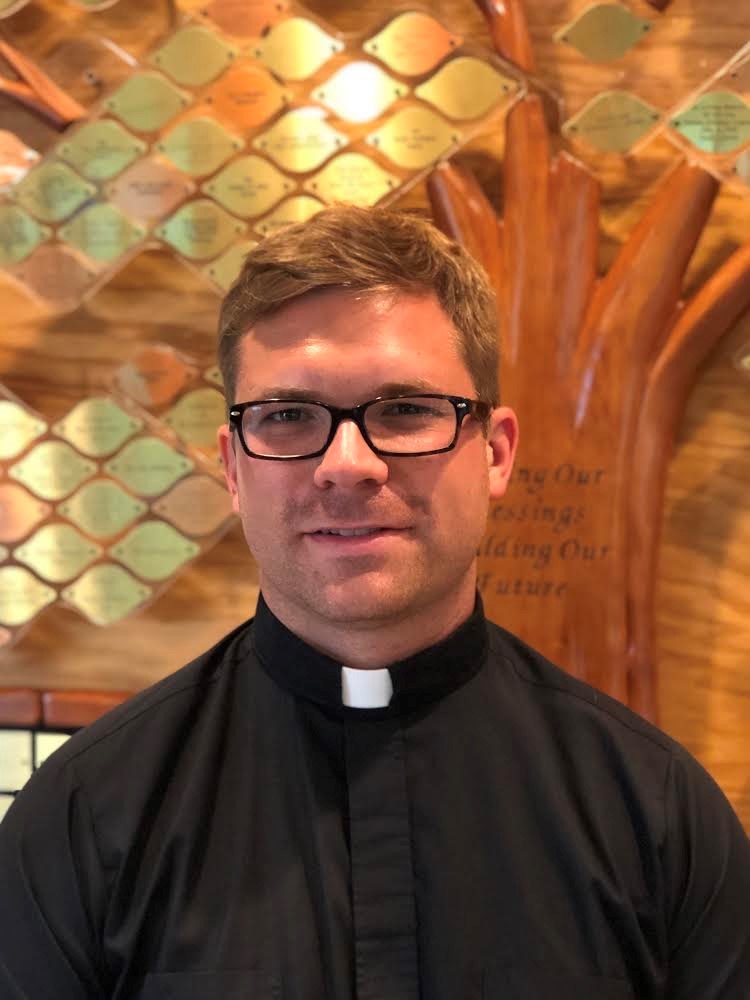



 RSS Feed
RSS Feed